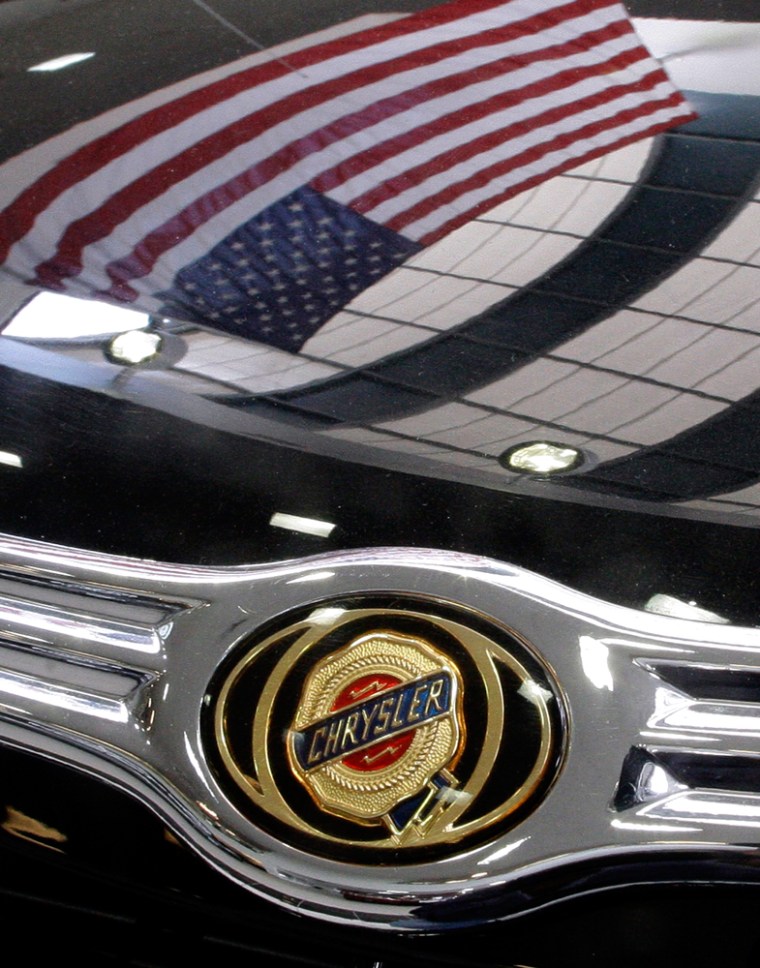U.S. auto sales struggled to gain ground in November and big improvements aren't expected until people stop worrying about losing their jobs.
Sales last month were mostly stable, but even higher incentives couldn't push the needle much beyond last November's dismal lows, when a credit freeze and the financial meltdown kept car buyers at home.
One strength was sales of fuel-efficiency cars and crossovers, which are as roomy as SUVs but are built on lower car frames, bolstering fuel economy.
Last month's big winner, again, was South Korea's Hyundai, which posted double-digit sales growth. Sales at the top three U.S. sellers — General Motors, Ford and Toyota — held steady, while Chrysler struggled for another month.
The auto market is recovering from a historic drop in sales that began last year. Sales in October were unchanged from a year ago.
Small monthly auto sales increases are likely as the economy continues its slow improvement, but larger sales gains will not happen until the jobless rate drops substantially, and people feel confident spending money on big-ticket items, said Martin Zimmerman, a former Ford Motor Co. chief economist who now teaches at the University of Michigan.
The U.S. jobless rate hit 10.2 percent in October, a 26-year high, and Zimmerman said people are holding onto their vehicles.
Carmakers continued to rely on discounts and other incentive spending to sell cars and trucks last month. Sales incentives rose 2 percent in November to $2,713 per vehicle, according to the auto Web site Edmunds.com.
General Motors said its sales fell 2 percent in November, though sales of its core Buick, Cadillac, Chevrolet and GMC brands rose. Ford's sales were essentially flat compared to last November, at 122,846, although sales of its crossovers rose 26 percent and car sales rose 14 percent. Trucks and SUVs saw double-digit declines.
Ford's hybrid sales increased 73 percent, to 2,361, as buyers gravitated toward gas sippers. At about $2.65 per gallon (70 cents a liter), regular gasoline is up around 50 cents over November of last year.
The Ford Fusion sedan, which leads the mid-size category in fuel-efficiency at 34 miles per gallon (6.9 liters per 100 kilometers), posted a 54-percent increase from last November, shattering its previous record for full-year sales.
"We can see now that a modest economic recovery is under way," Ford senior economist Emily Kolinski Morris said.
Toyota said its U.S. sales rose 2.6 percent to 133,700, led by standbys like the Camry sedan and the RAV4 crossover. Hyundai sales soared 46 percent on the back of its top-selling Sonata sedan.
Honda's U.S. sales fell 2.9 percent in November on slower sales of small cars like the Fit and the Civic.
Chrysler said it sold only 63,560 vehicles last month, a decline of 25 percent, and it announced an array of sales incentives including zero percent financing and cash rebates designed to draw buyers into its showrooms.
Chrysler said that despite the decrease, its market share rose to 8.4 percent from 7.9 percent in October, a sign that consumer confidence in the company is building after it released its five-year business plan earlier this month.
Last November, U.S. car and light truck sales fell to a 26-year low of 743,606, according to Ward's AutoInfoBank. Sales tumbled even lower in January and February before climbing steadily through the spring and summer.
Although the factors that drove down last year's November sales have abated, auto sales will not lead the economy out of recession, Zimmerman said.
"I think we have to see more of a coincident rise in the level of economic activity," he said. "I think it's a ways away. It's coming. It's not here yet."
Ford showed some optimism for the coming year, increasing first-quarter production plans by 58 percent to 550,000 vehicles. Its fourth-quarter production plan is unchanged.
